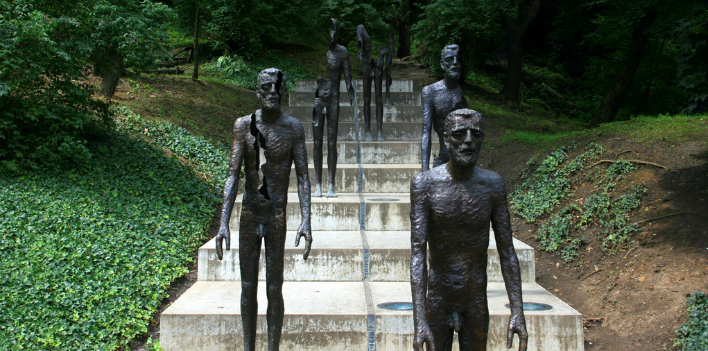
EspañolThroughout history, socialists have tried to incriminate their adversaries, calling the achievements made in the battle to spread democracy “imperialism” and warmongering.
In their continuous attempt to denigrate freedom, they have blamed the worst crimes committed by some nations as consequences of liberty. But the reality is that never in the name of ideas has a liberal society erected gulags to exterminate its citizens.
Despite continuing episodes that illustrate the heinous crimes of socialism, this model has not gone away. Again and again it is supported by irrational hearts seduced by typical idealistic rhetoric.
Today what is arguably the strongest democracy in the world is captivated by the words of a socialist apparatchik known as Bernie Sanders.
Latin America has endured an ideology, fortunately in its terminal phase, which has managed to impose the greatest destruction and misery the continent has seen.
Similar projects continue to show up around the world. If we have learned anything, they are doomed to failure and societal rejection when their true colors appear.
In its well-known revolutionary rhetoric, socialism seeks to end exploitation: a class allegedly has absolute power over the poor and crushes their will by imposing a model that benefits only the interests of a few.
Ironically, the solution put forward by socialists is the concentration of power.
By any definition, socialism requires tremendous concentration of power in the hands of a few enlightened who can carry out the “popular will” — a power to control, regulate, redistribute, and micro-manage society.
Here’s another truth: concentrated power is dangerous. Very, very dangerous. Socialism, by nature, and based on the given premises, is the opposite of freedom, cooperation, and decentralization. Awarded by the irrationality of the people, the powerful define what is “the common good.”
What typically supports these regimes is an umbilical cord that connects citizens’ needs with the state. It creates a dependence that gradually eats away their freedoms. Socialism offers equality in exchange for freedom.
They rely on poverty to keep the system under control, a way of life that imposes arbitrary destruction and death.
Dissidence is forbidden. How can you possible be against the “common good” and the welfare of citizens? It is “anti-revolutionary,” an intolerable sin.
The Deadly Record of Socialism
History shows us that socialist utopias bring about completely brutal societies.
In the 1940s, Vasili Grossman and Ilya Ehrenburg published The Black Book, a testimonial compilation of all the crimes committed against Jews during the Third Reich. Decades later,, in 1997, several university professors published what would become an indispensable document for understanding the crimes and horrors committed by the communist utopia: The Black Book of Communism.
History shows us that socialist utopias bring about completely brutal societies.
Under modest estimates, the deaths under socialist-inspired societies reach 100 million people, their lives destroyed by a completely failed ideology, by the absolute corruption that absolute power produces.
[adrotate group=”8″]In his book entitled Death by Government, Rudolph Rummel, an important academic and political scientist at the University of Hawaii, documents the bloody legacy and other tyrannical experiments resulting from the “good intentions” and “common good” planning.
The Soviet Union has been one of the most efficient killing machines in history. Approximately 20 million people died under the regime that sought to establish a genuine socialist nation.
Very few remember Joseph Stalin’s slow motion genocide within Ukraine. The mass killing called Holodomor (famine) took the lives of more than 7 million people. But today only a few dare to hold a failed ideology responsible for these crimes.
Moreover, the tyrant Mao Zedong murdered more than 60 million people on behalf of the People’s Republic of China.
The Socialist Republic of Vietnam murdered more than 1 million people. Under the Khmer Rouge regime, 2 million people died in Cambodia; 2 million in North Korea, 1 million in the Eastern Europe Communist regimes, 1 million in the Socialist Republic of Yugoslavia.
Additionally, the Black Book recorded about 150,000 people killed in Latin America under similar regimes, and 10,000 deaths from other international communist movements and communist parties not placed in power.
How do we conceive of a world where the adventures along these paths of destruction are not yet convicted or rejected?
It only remains to use the phrase attributed to Santayana, Bonaparte, Lincoln, Cicero, even Hitler and Pablo Escobar: “Those who ignore history are doomed to repeat it.”
 Versión Español
Versión Español












